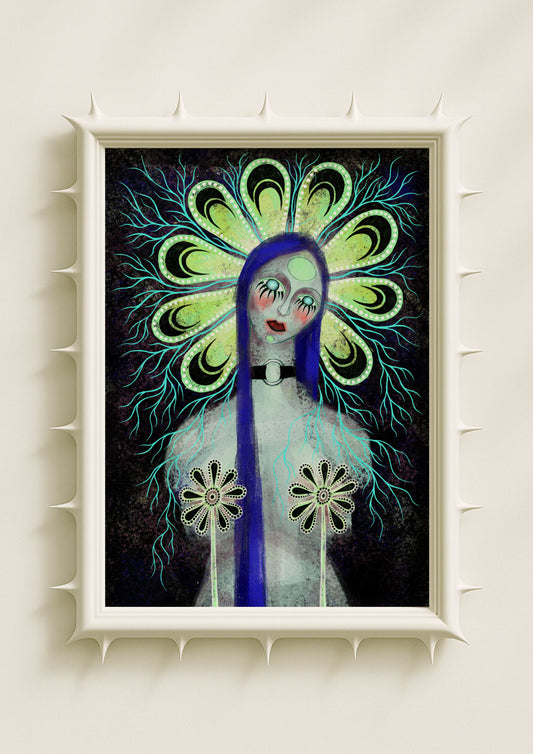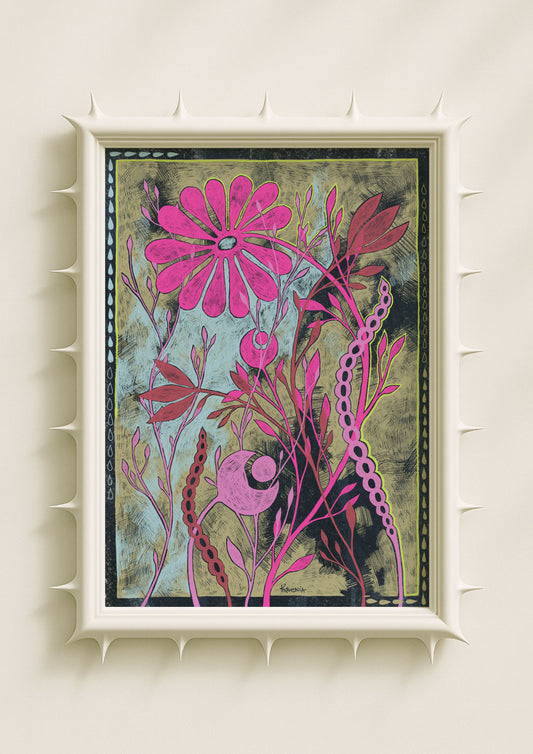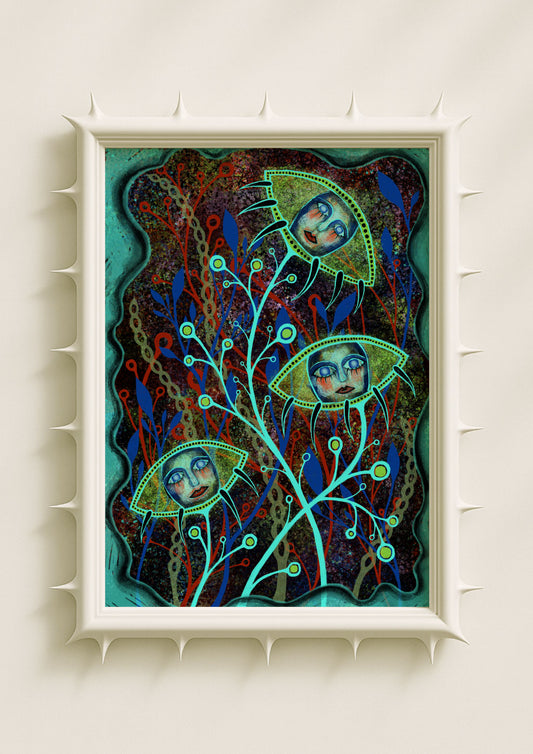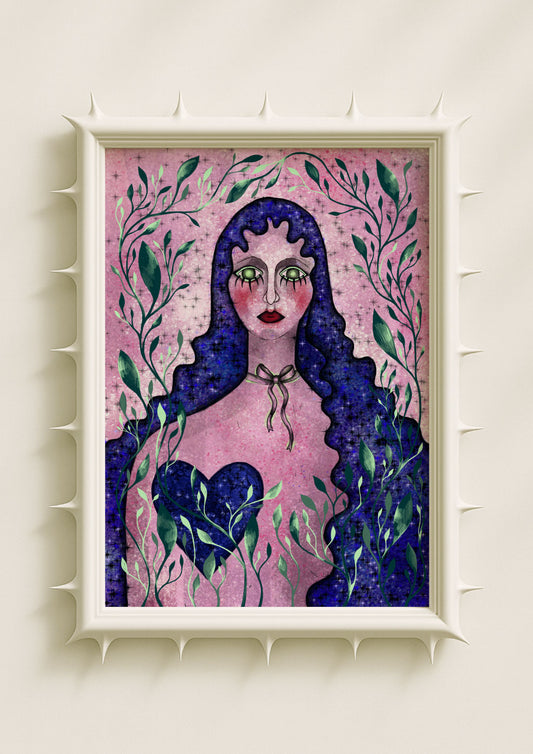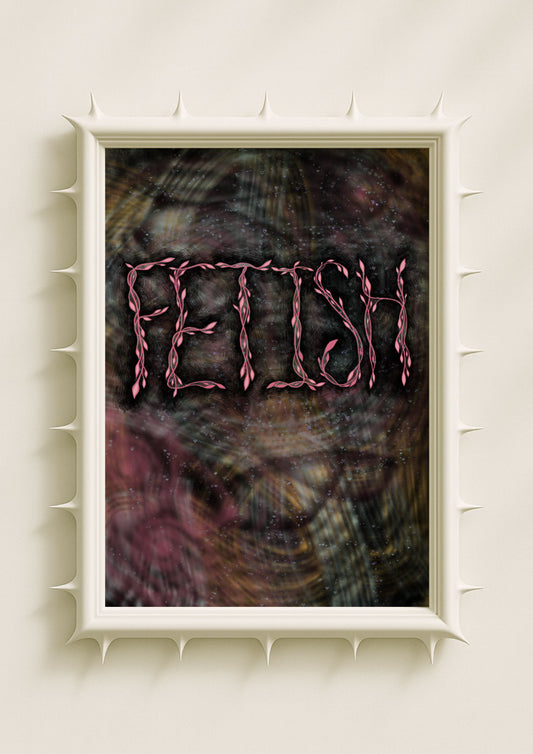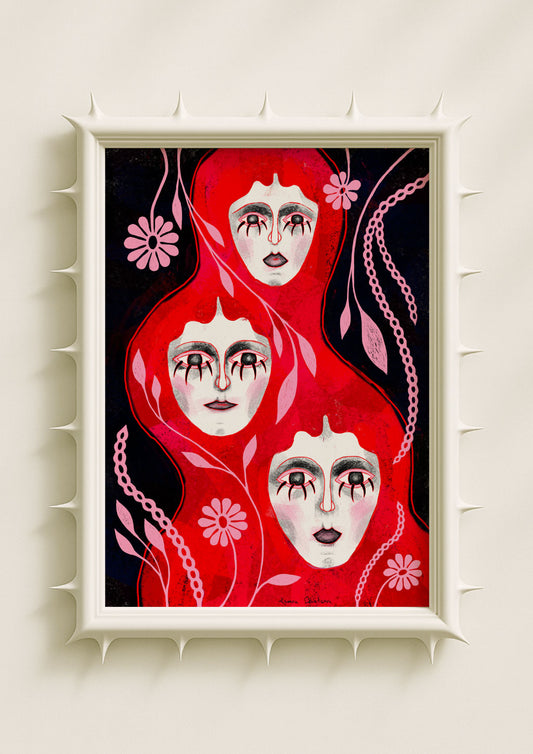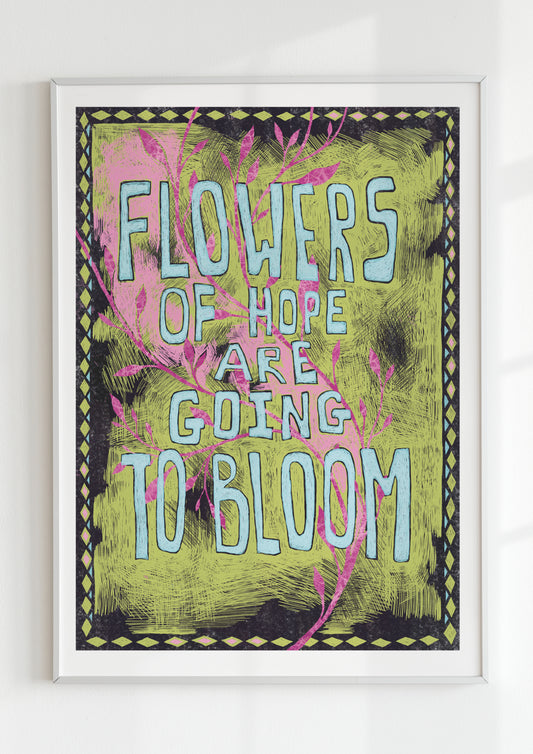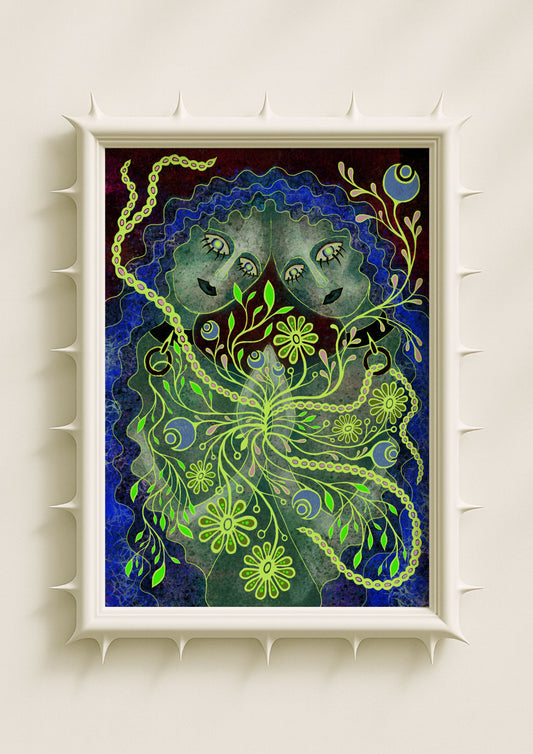The Spirit of Quirkiness
To call something quirky is to admit it does not fit the mold. It resists smoothness, symmetry, and predictability. In design and art, the quirky aesthetic embraces the eccentric—faces that are slightly distorted, colors that clash joyfully, motifs that seem too whimsical or humorous for traditional interiors. Far from being frivolous, these touches breathe energy into domestic spaces, reminding us that homes are not museums of perfection but living environments charged with personality.

Humor as Design Language
The quirky aesthetic often thrives on humor. A surreal print where eyes bloom as flowers, or a portrait with exaggerated lashes, does not simply decorate—it provokes a smile, a double take, a spark of recognition. Humor here is not decoration’s enemy but its ally: it makes space more human, less rigid, and more responsive to our daily moods.
In a world that often asks for restraint, quirky interiors embrace play, parody, and exaggeration as strategies of survival.
Whimsy and Everyday Escape
The whimsical dimension of quirky design connects it to childhood, fairytales, and dream states. A poster in acid pink, a symbolic botanical twisted into unexpected form, or typography that dances across a wall invites the inhabitant to escape routine. Whimsy in interiors is not distraction—it is a subtle ritual of relief, a reminder that life contains more than tasks and obligations.

Quirky aesthetics soften daily life not by denying its seriousness, but by opening cracks where fantasy can enter.
Outsider Touches and Raw Expression
Much of what we call quirky has roots in outsider art—the creations of those who worked outside academic traditions, often producing works raw, bold, and emotionally direct. Incorporating outsider-inspired prints or motifs into interiors carries this energy forward. Eccentric art rejects polish, favoring honesty and invention. It affirms that beauty is not only refinement, but also imperfection, humor, and idiosyncrasy.
The Psychology of Eccentric Interiors
Why do quirky aesthetics make interiors feel alive? Because they prevent spaces from becoming static. A perfectly balanced room risks becoming inert, whereas the presence of something eccentric—a surreal face in bold colors, a playful botanical, a maximalist composition—keeps the atmosphere shifting, vibrant, and open-ended.

The quirky aesthetic ensures that a home mirrors not just ideals of harmony, but the full spectrum of human feeling: joy, confusion, humor, spontaneity.
Toward a Poetics of the Quirky
To live with quirky art is to live with a refusal of uniformity. It is to embrace eccentricity not as flaw but as spark, as aliveness. Humor, whimsy, and outsider gestures weave interiors that feel personal, unpredictable, and vital.
The quirky aesthetic, with its playful surrealism and bold eccentricity, reminds us that art on our walls need not only elevate or soothe. It can also laugh with us, surprise us, and keep us alive to the strangeness—and beauty—of being.
